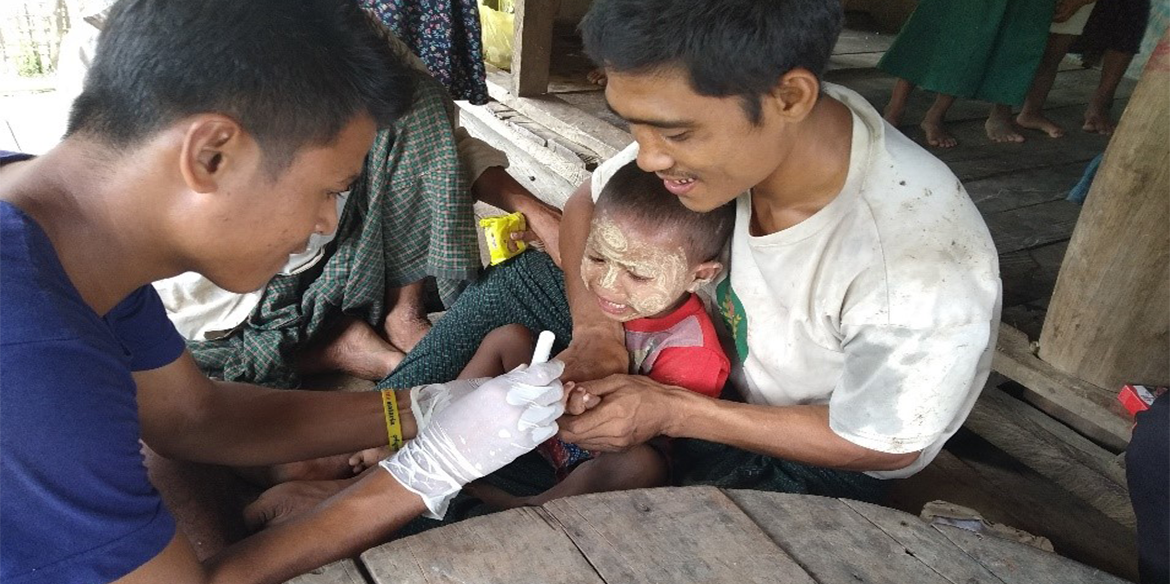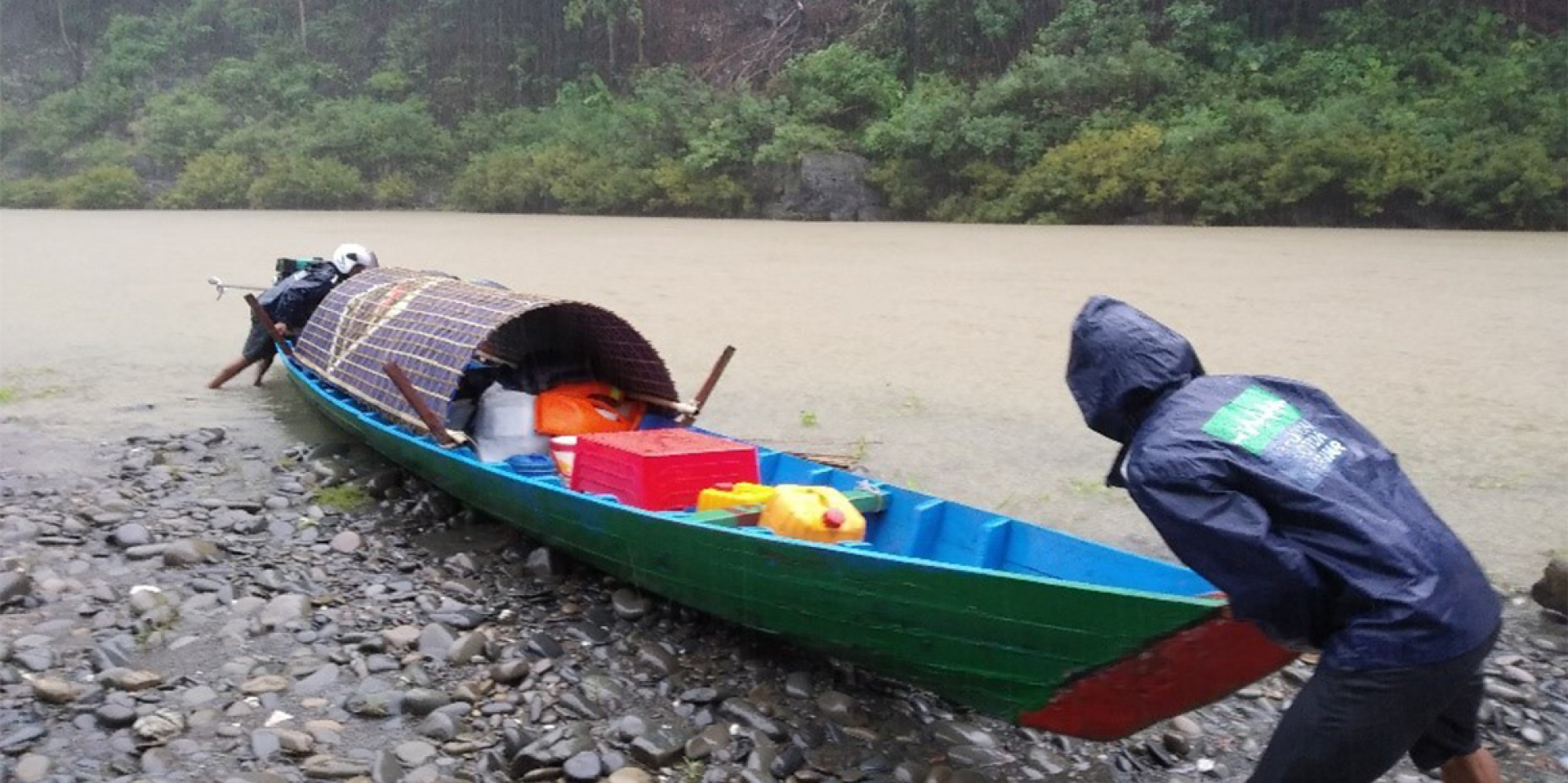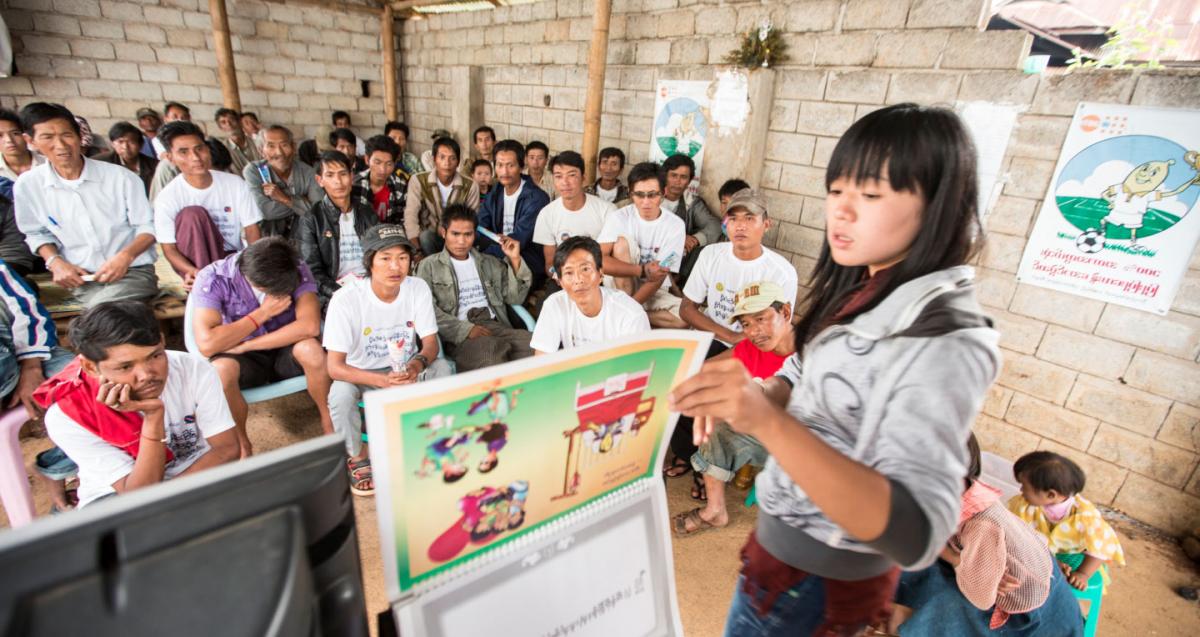The VHW are based in remote communities and provide malaria screening and treatment services, conduct tuberculosis case finding and patient follow-up, deliver a basic health care package, and refer people with health emergencies to the hospital.
Malaria has been a major public health threat for generations in Paletwa Township, which has the highest malaria burden of all 330 townships in Myanmar. One out of five malaria-positive cases in Myanmar in 2018–2019 was from Paletwa. Most positive cases were found to be Plasmodium falciparum, a species that causes a severe form of malaria, which if untreated can result in death. In Paletwa in 2019, more than 7,600 P. falciparum malaria cases were identified and treated by 204 VHW, trained by MAM with the support of the Global Fund.
Delivering health services in this very remote township is never easy and has become more difficult since late 2018 due to armed conflicts. The fighting has worsened in recent months. The Internet was shut down, a curfew was put in place, public transportation is frequently disrupted, and access to villages can be temporarily blocked, depending on the conflict locations.




